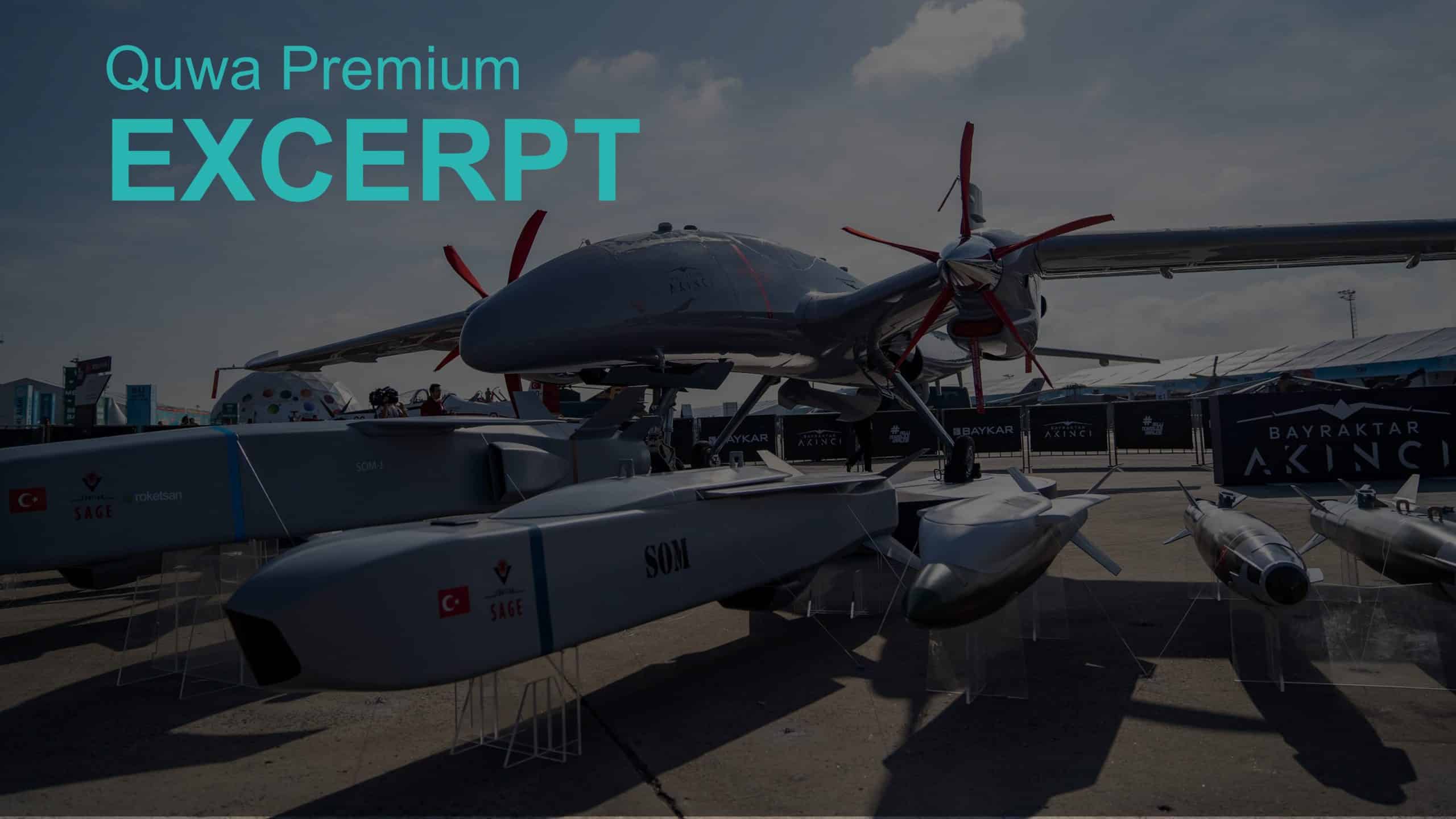3098Views 0Comments

Pakistan to Convert a Bombardier Jet into an Electronic Warfare Aircraft
Bilal Khan
Founder of Quwa, Bilal has been researching Pakistani defence industry and security issues for over 15 years. His work has been cited by Pakistan's National Defence University (NDU), the Council of Foreign Relations, Bulletin of Atomic Scientists, Centre of Airpower Studies and many others. He has a Hons. B.A in Political Science and Masters of Interntional Public Policy from Wilfrid Laurier University in Waterloo, Ontario, Canada.
The Pakistan Air Force (PAF) revealed that it will convert its lone Bombardier Global 6000 into a stand-off jamming (SOJ) aircraft with help from Turkish Aerospace Industries (TAI). The PAF originally hinted at converting the Global 6000 into a special mission aircraft in its latest calendar by labeling the jet as an electronic warfare (EW) platform. Recently, the PAF’s unofficial publication – Second-to-None – confirmed these plans.
Given that the PAF is engaging TAI to convert the Global 6000, one would assume that the PAF is planning to acquire the Aselsan HAVASOJ. Currently, TAI is configuring four Global 6000s with the HAVASOJ suite for use by the Turkish Air Force (TuAF).
Is Pakistan Seeking the Aselsan HAVASOJ?
The Aselsan HAVASOJ is equipped for three core EW missions: radar jamming, communications jamming, and electronic intelligence (ELINT).
For radar jamming, the HAVASOJ would leverage transceivers to jam enemy radars by recording their transmission frequencies and re-transmitting them using the same signal. The HAVASOJ is equipped with digital radar frequency memory (DRFM) systems to help achieve this capability. In the ELINT role, the HAVASOJ would monitor an area for all enemy radar and communications transmissions. It will record that information into a ‘threat library’ which would later feed electronic countermeasures (ECM) tasks, namely radar and communications jamming.
However, it is unclear if the PAF is seeking the Aselsan HAVASOJ. Thus far, it did not mention the HAVASOJ product or Aselsan. Hence, the PAF could still be deciding on the EW suite, which may present an opportunity for other vendors to enter the mix with bespoke solutions. It is also possible that the PAF is exploring a customized version of the HAVASOJ equipped for only one or two of the EW roles. In this scenario, the PAF would likely prioritize radar jamming ahead of the other functions (which can be delegated to other aircraft, like the Falcon DA-20s, drones, and land-based EW systems).
Analysis: A Key Piece for New Offensive Air Wings
As discussed in Quwa’s report about the PAF’s air warfare plans for the decade, converting the Bombardier Global 6000 into an EW aircraft is likely part of a wider effort to improve the PAF’s offensive capabilities. Based on the PAF’s recent system inductions and its leaders’ statements, the service arm is likely building air wings dedicated to long-range airstrikes and air interdiction.
The goal stems from the experience the PAF gained from Operation Swift Retort where it found relative success in deploying a large force comprising of multirole fighters, attack fighters, and a number of special mission aircraft, namely the Falcon DA-20 EW aircraft and Saab 2000-based Erieye airborne early warning and control (AEW&C) aircraft. From Pakistan’s vantage point, the PAF response in 2019 was decisive in dissuading India from repeating the Balakot operation. It was a successful conventional deterrence play as far as Pakistan was concerned.
However, the PAF is also aware that any future incursion into India will be met with a far greater increase in air and surface-based threats. For example, instead of the outdated MiG-21bis, the PAF will meet the Tejas Mk1A, a nimble and highly maneuverable lightweight fighter configured with an active electronically scanned array (AESA) radar and EW/ECM suite. Not only would it perform exponentially far better than the MiG-21bis, but it would also be a credible threat to any PAF fighter crossing the border, including the newly inducted J-10CE or prized F-16 Block-52. In addition, the IAF will also have the Dassault Rafale, upgraded Sukhoi Su-30MKI, and an array of advanced medium-range and long-range surface-to-air missiles (SAM) at its disposal. Finally, the assets will be tied together into a counter-response completely unlike anything in 2019…
End of excerpt (604/1297 words)
Log in or subscribe to read the rest of the article
Note: Logged in members may need to refresh the article page to see the article.


